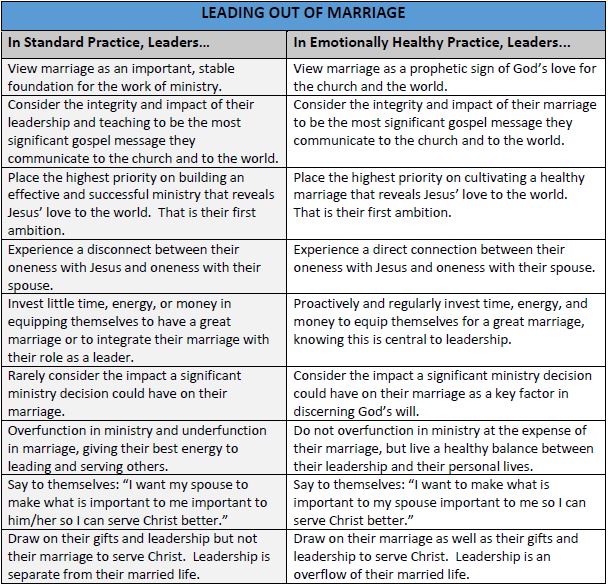 I am preaching again at Harmony Baptist Church today. Last week my message from Psalm 77 was centred around the devotional practice of meditating on the Scriptures. Today’s message is also focussed on the reception and use of the Bible in the Christian life, this time in terms of study rather than meditation.
I am preaching again at Harmony Baptist Church today. Last week my message from Psalm 77 was centred around the devotional practice of meditating on the Scriptures. Today’s message is also focussed on the reception and use of the Bible in the Christian life, this time in terms of study rather than meditation.
*****
Introduction: What is the Bible?
The Bible is the written Word of God; Jesus is the living Word of God (John 1:1, 14; John 5:39-40).
For Christians, the Bible is an inspired text, a divine-human book requiring divine-human interpretation. As a human book it is interpreted just like any other book: we have to read it carefully seeking to understand what the human authors sought to communicate: what was Isaiah saying? What was Matthew on about? So we pay attention to their context, their choice of words, the images and literary devices they use, the themes they develop, etc. As a divine book, however, we acknowledge a hidden author and a surplus of meaning.
Many Voices, Multiple Meanings
One of the confusing things for many Christians, one of the things we seem to know intuitively, is that the Bible is capable of many meanings. Perhaps we have heard some weird teachings in our time, or met some weird Christians with wacky interpretations of Scripture. As a result we might get anxious: what does the Bible mean? What is the right meaning?
The assumption here is that there is only one possible interpretation to the various passages in the Bible. Is this a legitimate assumption? Without succumbing to postmodern relativism it is possible to understand the Bible as a book with many voices and multiple meanings. This is not to suggest that the Bible can mean anything we want it to mean, that we can use the Bible to justify beliefs or behaviours we are already committed to, whether capitalism or socialism, militarism or pacifism. Nonetheless there is already an apparent plurality of interpretation in the Bible itself: two creation narratives, two infancy narratives, four gospels, five resurrection accounts, two accounts of Israel’s monarchy. Add to this the multiplicity of metaphors and symbols used to describe the character and work of God, the person of Christ, the achievement of the cross, the person and work of the Holy Spirit, the nature of the Christian life: is it any wonder different interpretations, different emphases arise from our study of Scripture? The Holy Spirit has given a surplus, even an excess of meaning in his inspired Word. Why? In the awesome wisdom of God he knew that multitudes of believers in multitudes of different times and climes, would need a word that addresses them.
Some Helpful Lenses When Reading Scripture
Read: Genesis 16:1-16
What do we do with a passage like this? What does the passage mean?
- A historian might be intrigued by the cultural practices of the day
- A doctoral student might focus on the origin of the Arabs in Ishmael
- Some might suggest that the passage teaches that the God of Islam and the God of the Jews are one and the same—and so then also, the Father of Jesus Christ
- A mildly feminist scholar might be concerned about the social structures that oppress powerless women
- A radical feminist might see further evidence of the irredeemably patriarchal nature of the biblical narratives, and argue for a wholesale reappraisal of Christian faith and practice
- An existentialist evangelist or a therapeutic preacher might see it as a call to authentic existence based on ‘where have you come from and where are you going?’
- Perhaps a Mormon would find legitimisation of the practice of polygamy
All these and more might be seen as the ‘meaning’ of the passage. When we add devotional ‘meanings’ possibilities are exponential.
- One person might be challenged to support a young woman with an unexpected pregnancy
- A male reader might find himself questioning why he persists in being a ‘wild donkey’ of a man
- A married woman might find herself convicted for being a grumpy wife!
- Another person might be encouraged to reach out to their Muslim neighbour or colleague
- Someone else might wonder whether the troublesome youth at work has had a rough ride
- A person in difficult straits may find comfort and hope in the knowledge that God cares
Lens #1: The Historical Meaning
The question to ask here is, “What did this text mean for its original audience?” Try to understand the passage in its original context: why has the biblical author included it? Before God’s Word is his Word to us it was his Word to another generation. Understanding something of what his Word meant for them will help us understand how to interpret it in our time and place. Accepting the tradition that Moses wrote the early books of the Bible, it would be an encouragement to the people of Israel not to go back to Egypt. Their future is not in Ishmael (an Egyptian mother and wife); their inheritance is in Isaac. Letting Scripture interpret Scripture: this seems to be the meaning Paul saw in the passage when he interprets Sarah and Hagar as two covenants. We are the children of the free woman, not the slave woman!
Lens #2: The Doctrinal Meaning
We can ask further: what doctrinal content is found in this text? What does it teach us about God, Christ, the Holy Spirit, salvation, the church, humanity, Christian life, etc? This passage teaches us some rich things about God:
- he is a God who hears the affliction of those who suffer,
- who sees us, especially in our need
- God cares about the lowly, the disenfranchised, poor, outcast, etc
- God comes, God speaks, God promises;
We also see a challenging pattern about God and his activity: he sees Hagar and comes to her, asks her a leading question, commands her with a difficult command, and makes a promise of blessing. His command is part of his grace, even though it is so difficult. This is a paradigm for the work of grace.
Lens #3: The Cultural-Redemptive Lens
The question to ask here is, “How does this passage challenge the way we see the world? What better vision of the world does it present?” This passage could challenge us to consider the way traditional social attitudes and structures impact others. It might challenge us to think about actual people we know in impossible or vulnerable circumstances. We might question the assumptions we have about those in minority cultures.
Lens #4: The Missional Lens
What does this passage call us to, in light of the overall story of God, his purpose, and his people? How does this passage call us to act in light of who God is and what God does? As individuals and congregations take seriously the challenge of reflecting on Holy Scripture we become a people who may be ‘caught up’ into the story that God is continuing to write in the church and in the world.
Conclusion: All the World is a Stage
Interpreting Scripture can hard work, but it is necessary work and even joyful work. God has given us his Word, not simply to help us find a comforting life verse every now and then, but to renew our minds, to shape our vision, to stir our will, and so to transform our lives (Romans 12:2).
Imagine … you are a Shakespearean specialist and come across an original unfinished manuscript. How incredibly excited you are. You begin poring over it and find it incomplete – several initial acts, but the final climactic act remains unfinished. What will you do? You gather other specialists, actors, etc and begin to think through how you would write and perform the missing act. You study the existing text until you know its inner coherence, its trajectories, its emphases and problems so well that you can begin to anticipate how the action of the missing segment will proceed. You improvise…
This is the situation of the contemporary Christian. In the bible we have an incredible five-act drama, stretching across millennia, with hundreds of characters. It is an immense epic which will come to completion in a sudden burst – sixth act when everything will come to resolution. The problem, however, is that the fifth act is incomplete: the story is still being written, the actors—you and I—are still on the set, the director—the Holy Spirit—is still orchestrating the drama. We have the script—the Bible as Torah—to form and inform us. True meaning is that which we enact on the stage of history, guided by the story that has so far been written, looking for the ultimate resolution and consummation yet to come.
 The June edition of Christianity Today had a small report called “Daily Devotion” which asked the question, What’s essential to being a Christian? It was actually a report on a Pew Forum research project on how American Christians of all denominations apply their faith in daily life. The results are interesting and perhaps a little sobering as well.
The June edition of Christianity Today had a small report called “Daily Devotion” which asked the question, What’s essential to being a Christian? It was actually a report on a Pew Forum research project on how American Christians of all denominations apply their faith in daily life. The results are interesting and perhaps a little sobering as well.

 I am preaching again at Harmony Baptist Church today. Last week my message from Psalm 77 was centred around the devotional practice of meditating on the Scriptures. Today’s message is also focussed on the reception and use of the Bible in the Christian life, this time in terms of study rather than meditation.
I am preaching again at Harmony Baptist Church today. Last week my message from Psalm 77 was centred around the devotional practice of meditating on the Scriptures. Today’s message is also focussed on the reception and use of the Bible in the Christian life, this time in terms of study rather than meditation.




